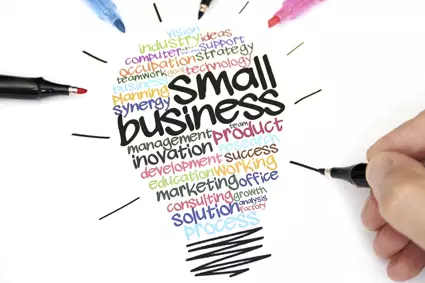By Mr. Phoung Vuthy, Managing Director & Trainer of MRTS Consulting Ltd
 Small business is the heart for any developing country. It is easy to start but it is hard to keep business healthy and stay long in the market if it is not started properly with a clear marketing and financial strategy. As our experiences in small business ourselves and talking with other small business owners in Cambodia, we found some key challenged questions facing small business regarding to marketing which required reliable answers so that effective strategies can be develop for business and product/service to achieve market share in Cambodia as below:
Small business is the heart for any developing country. It is easy to start but it is hard to keep business healthy and stay long in the market if it is not started properly with a clear marketing and financial strategy. As our experiences in small business ourselves and talking with other small business owners in Cambodia, we found some key challenged questions facing small business regarding to marketing which required reliable answers so that effective strategies can be develop for business and product/service to achieve market share in Cambodia as below:
1. Who the current users of their product or service and who should they target to grow the market share – ie. Age, Gender, Income etc.
2. Where & When is their product or service purchased and used and what are the opportunities for reaching more customers.
3. What motivates customers to use their product or service and how can they attract new customers?
4. How should they communicate their product or service in order to attract more users?
5. What is the growth potential for their product or service and where will it come from, penetration within existing customers and/or new customers?
In order to get answers to these questions, small business needs to conduct marketing research using a variety of methods. This article will outline some of these methods and illustrate some key questions should be asked. All have some value, but it is important to know the limitations of each technique.
1. 1. Talk to Your Customers – this is a less expensive way to do. Key questions that you could ask include: What made them purchase from you not the competitors? How did they hear about you? How likely they will purchase your product again in the further? Make it worth their time to give you feedback — perhaps a discount on their next order. And let them know that their feedback will help you serve them better in the future. By talking to your customers, it helps you understand more about their needs and satisfaction so that you can develop strategies to retain them and to increase their purchasing rate. Remember that satisfied customers are normally your free advertisement.
2. 2. Talk to Your Potential Customers — those who are currently not using your product or service, or only using occasionally, but who are willing to try it in the future. Some key questions you could ask includes: What do they think about your product in comparison to your competitors? What make them switch to buy your product or service? How did they hear about you? The finding from asking potential customers can help business owners to understand the position of their product or service in the mind of customers to determine the key strength and weakness. This can also help to understand what kind of promotions to be used in other to attract potential customers to use your product or service etc.
3. 3. Talk to Your Product or Service Rejecters Or Laps Users — those who reject or do not have an intention to your product or service. This is Important to know their profile and motivation for stopping or not wanting to use. The key questions that you could ask include: Reasons that they don’t intent to try your products or services/ stopped using? What if the negative aspects are addressed, do they intend to try? This can help to develop strategies to attract them whether they never hear about the product or service, or they don’t trust the product or service etc. It is also necessary to talk with them if they used to use your product before so that you understand the reason why they stop, whether because of the quality of product or service or price or service etc. Remember that a dissatisfied customer will talk to 10 of their friends about their bad experience with you.
The method that you can use to collect the data to answers to your marketing questions is depending on your target customers ie. who they are, where they live and how they purchase from you. However, some methods you can use to ask questions include: 1. when your customers purchase from you (if the questions do not take more than 5mins), 2. if you have list of your customers, then you can call them up (the questions cannot take longer than 10mins), 2. visit your customers’ house at their convenience time (this method you can ask more questions, up to 30-40mins).
For more information about this article, please contact: vuthy@mrtsconsulting.com

